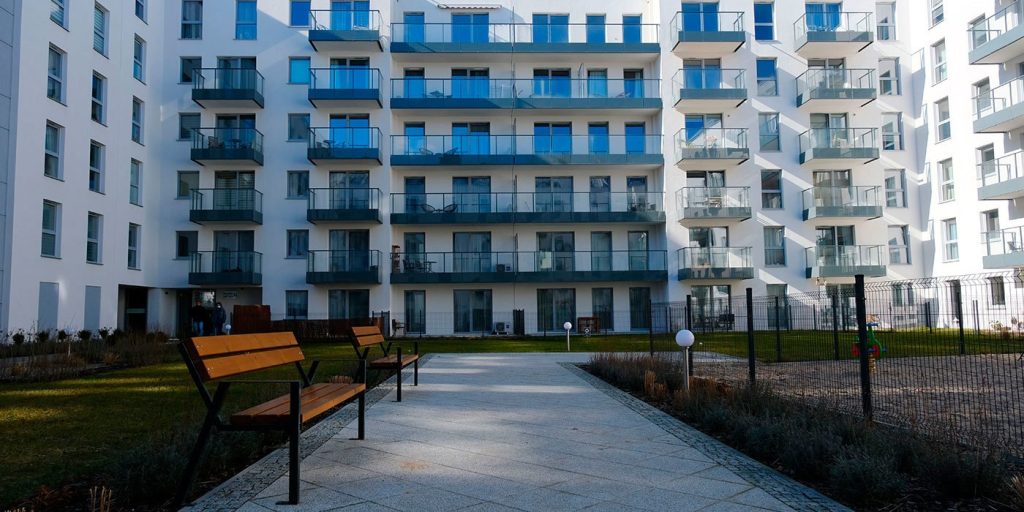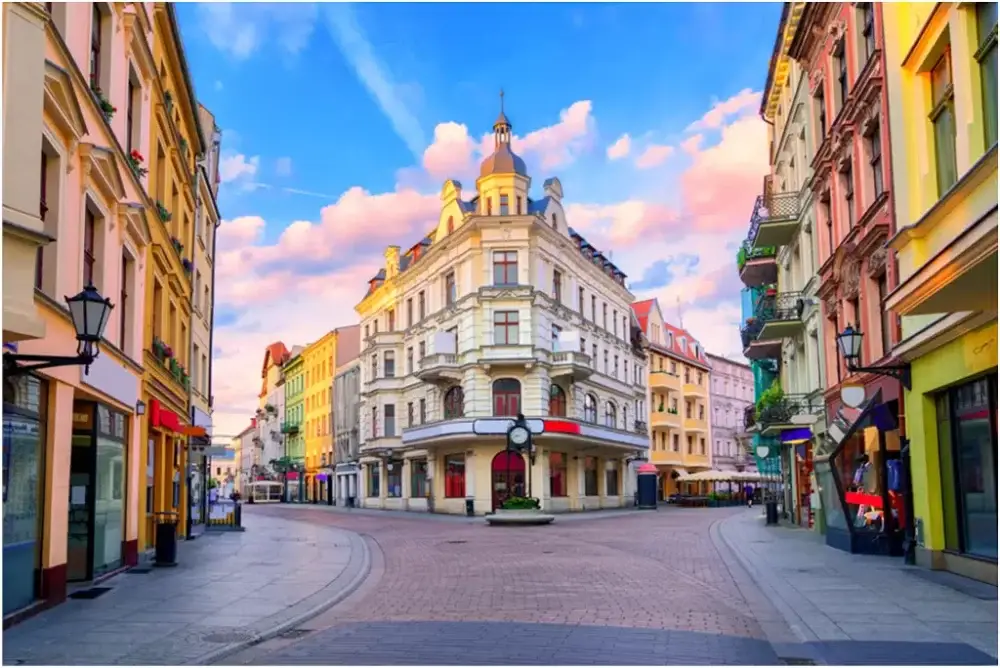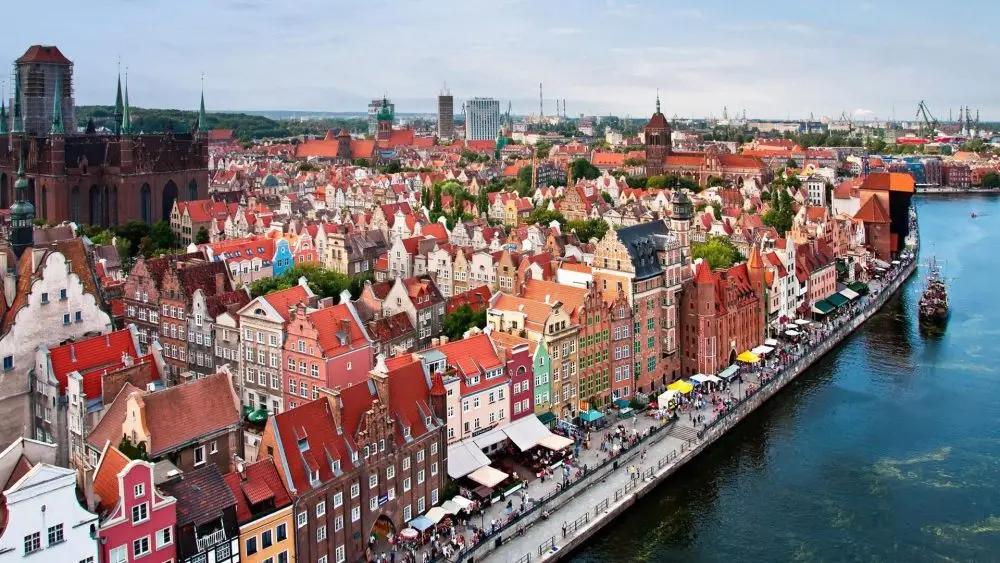Mortgages in Poland for foreigners have become a key financial mechanism for buying a home in the EU. The Polish property market is showing steady growth. Demand is supported by a stable economy, favourable geographical location and a developed banking system. The country’s financial institutions willingly provide loans not only to citizens, but also to investors from other countries, especially those with transparent incomes and stable status.
When buying property with mortgage funds, foreigners gain access to a European asset with title protection, predictable repayments and the possibility of subsequent relocation. Rates remain at competitive levels from 3.5 per cent, with down payments starting at 20 per cent. The procedure is clear and the loan term is up to 35 years.
Who and how can get a mortgage in Poland: information for foreigners
Polish banks lend to citizens of the EU, CIS, Asia and the USA, provided they have a stable income, a clear source of funds and a documented legal status in the country. Mortgage in Poland for foreigners is available even without residence permit, but the requirements become stricter in the absence of residency.
Categories of foreign borrowers:
-
with a temporary residence permit – in the presence of a labour contract;
-
with long-term stay – business owners, investors;

-
non-residents without status in Poland – through international programmes;
-
EU citizens – equal to local citizens under the terms of the loan.
Legal status affects the amount of contribution, the type of documents and the bank’s interest rate surcharge. The more stable the borrower is, the more favourable the terms.
Terms and conditions of mortgage lending
 Mortgages in Poland for foreigners are issued in the national currency – Polish zloty. Foreign currency lending is not available, which reduces the risks of exchange rate fluctuations and ensures predictability of repayments.
Mortgages in Poland for foreigners are issued in the national currency – Polish zloty. Foreign currency lending is not available, which reduces the risks of exchange rate fluctuations and ensures predictability of repayments.
Main parameters:
-
The interest rate ranges from 3.5 per cent to 5.2 per cent.
-
Loan term – from 5 to 35 years.
-
The maximum loan amount is up to 80% of the object’s value.
-
Down payment – from 20% (for residents), from 30% (for non-residents).
-
Borrower’s age – from 21 to 70 years old.
-
Property type – new buildings, secondary market, commercial properties.
Banks in Poland will only grant a mortgage loan on condition of a full credit check. Financial history, income, stability of employment and legal clarity of the transaction play a decisive role.
Income, documents and legal details
A mortgage in Poland for foreigners requires a clear and transparent evidence base. The bank analyses the income structure for the last 6-12 months, with preference given to official salaries and contracts.
The mandatory package includes:
-
passport and residence permit;
-
income statements, tax returns;
-
a tenancy agreement or business registration;
-
credit report (if there was a previous loan);
-
bank statements;
-
preliminary sales contract;
-
Title documents for the object.
When buying a flat in Poland with a mortgage, a non-resident applies for a tax identification number (PESEL), registers the address of residence and confirms the existence of an account in a Polish bank.
Step-by-step scheme: how to get a mortgage in Poland for a foreigner
Consistency affects the speed of approval and minimises legal and financial risks. Stages of processing:
-
Preparation of financial dossier – translation of documents, certificates, statements.
-
Opening an account in a Polish bank.
-
Obtaining a PESEL tax number and registering an address.
-
Selection of the object and conclusion of the preliminary contract.
-
Property valuation and independent expertise.
-
Submitting a mortgage application to the selected bank.
-
Analysing your credit file and getting approval.
-
Signing of the agreement and transfer of liens.
-
State registration of ownership.
-
Transferring the money to the seller and handing over the keys.
The procedure lasts from 6 to 12 weeks, depending on the completeness of the documents and the promptness of the parties. With the support of an experienced lawyer and mortgage broker, the process is simplified and takes less time.
Banks in Poland: who lends to foreign investors
Home loans in Poland are provided by large universal banks actively working with foreign borrowers. If you have a stable income and a clean dossier, institutions are willing to open financing for the purchase of primary or secondary housing. The most active lenders:
-
PKO BP, the country’s largest bank, lends for up to 35 years;
-
mBank – loyal terms and high speed of consideration;
-
Santander Polska – reliability and a wide range of mortgages;
-
Bank Pekao – co-operation with non-residents, rate from 3.7%;
-
Alior Bank – active lending to IT professionals and freelancers.
Common investor mistakes
A mortgage in Poland for foreigners requires care. Mistakes increase the processing time or lead to rejection. Below are common problems:
- Ignoring translation of documents – banks require official translations into Polish.
-
Lack of tax number – without PESEL, clearance is not possible.
-
Insufficient down payment – the bank rejects the application if the contribution is less than the established minimum.
-
Unreliable income – only official and documented income is accepted.
-
Incomplete package of documents – absence of even one certificate slows down approval.
-
Choosing the wrong bank – conditions vary, not all work with foreigners.
-
Buying without prior due diligence – properties with encumbrances create risks.
-
Misunderstanding the payment schedule – incorrect calculation leads to delinquency.
-
Neglecting insurance – insurance lowers the rate and protects the investment.
-
No escort – a professional advisor saves months and reduces risk.
Investing in Polish property: a strategic tool
Mortgage in Poland for foreigners is actively used not only for living but also as an element of property investment strategy. Warsaw, Krakow, Gdansk, Wroclaw – cities with steady growth of housing prices, high demand for rent and active development of infrastructure.
Real estate in Poland brings income from 5 to 8% per annum when rented out, with mortgage payments are often covered by income from tenants. In 5-7 years, the owner builds up capital, improves credit history and receives an asset that grows in value every year.
The mortgage is especially relevant for an investor who plans to:
-
to acquire studios in the city centre;
-
to invest in an apartment complex for daily rent;

-
to buy a property with the intention of selling it after the market rises.
Banks in the country take into account the investment model and provide mortgages if the conditions are met. The payback period for projects with the right structure does not exceed 10 years.
Conclusion
 A mortgage in Poland for foreigners opens access to an asset in the EU with minimal risks and high predictability. With the right income, a reasonable down payment and profitability calculation, the property becomes a source of passive income and legal support. Conditions remain transparent, interest rates are competitive and the banking system protects the rights of the borrower and the seller.
A mortgage in Poland for foreigners opens access to an asset in the EU with minimal risks and high predictability. With the right income, a reasonable down payment and profitability calculation, the property becomes a source of passive income and legal support. Conditions remain transparent, interest rates are competitive and the banking system protects the rights of the borrower and the seller.
Obtaining a mortgage loan requires discipline, but it provides a clear tool for creating capital, building an investment portfolio and solving the issues of living in one of the most promising countries in Central Europe.
 en
en  de
de  ar
ar  es
es  nl
nl  hi
hi  fr
fr  it
it  pt
pt  el
el 











